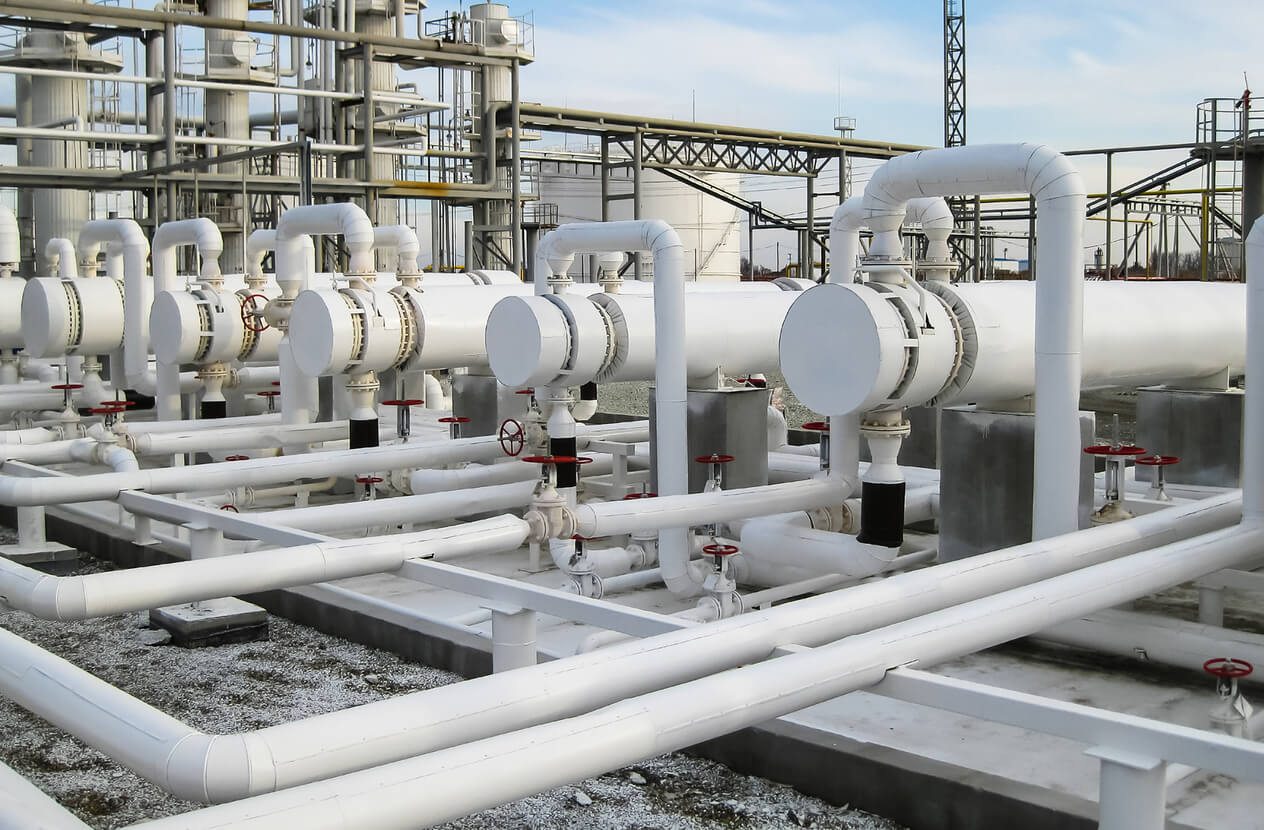

Process piping involves the intricate design and installation of pipes that transport fluids and gases within industrial settings. These systems are essential for various mechanical processes, including transferring raw materials, production support and waste management.
Efficient and reliable process piping is crucial to maintaining the integrity and performance of industrial operations. At Meritus Gas Partners, we understand the complexities and demands of designing, installing and maintaining high-quality process piping systems. Our expertise ensures your systems adhere to all relevant health and safety standards.
While both power and process piping systems are integral to industrial operations, they serve different purposes. Power piping primarily deals with the systems that produce and distribute energy, such as high-pressure steam. Process piping refers to the movement of fluids and gases in the manufacturing process itself.
Designing a safe and efficient process piping system requires careful consideration of several factors:
Selecting the appropriate materials for your piping system is a critical decision that impacts its performance, durability and safety.
Several factors influence the type of piping to use, including:
Some commonly used materials in industrial piping include:
A robust piping system comprises several key components, such as:
Inferior parts can lead to leaks, system failures and safety hazards, emphasizing the importance of selecting high-quality components. We only use reliable and certified materials and parts to design a system that integrates seamlessly, maintaining safety and efficiency while meeting all regulatory standards.
Verifying the integrity and efficiency of a piping system involves stringent quality assurance protocols and the ability to provide custom solutions tailored to specific industry needs. At Meritus Gas Partners, we adhere to the highest design, fabrication and installation standards so that every piping project meets rigorous quality benchmarks.
We demonstrate our commitment to quality through strict adherence to national and international standards and regulations, including American Society of Mechanical Engineers (ASME) standards, NFPA 99 Health Care Facilities Code and ASSE plumbing standards. These guidelines make sure our piping systems are safe, reliable and capable of performing under the demands of their specific operational conditions.
Key aspects of our quality assurance process include:
Understanding that each industry has unique needs, Meritus Gas Partners specializes in designing custom solutions. Our expertise extends to:
Different gases require distinct handling and transport considerations. Our design approach accommodates the specific properties and safety requirements of various gas types, including:
The longevity and optimal performance of process piping systems depend on regular maintenance and a commitment to compliance with industry standards and certifications.
Meritus Gas Partners offers comprehensive maintenance services, including:
Compliance with industry standards and regulations is nonnegotiable in process piping. Meritus Gas Partners designs, installs and maintains all systems in accordance with relevant certifications and compliance documentation.
We help clients navigate the complexities of:

Work with Meritus Gas Partners for all your process piping needs. Our team of certified professionals is equipped to handle projects of any scale and build each system to the highest quality and safety standards. Contact us for more information or to schedule a consultation.